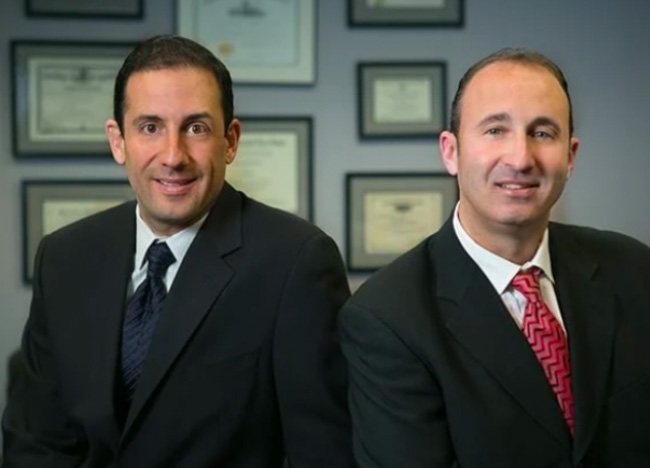Nebraska Lemon Law Attorneys
Since 1995, Krohn & Moss, Ltd. Consumer Law Center® has represented and helped over 60,000 consumers obtain relief for their defective or misrepresented consumer products. Contact our Nebraska lemon law attorneys for a case review.
Nebraska Lemon Law
What do you do when your new car isn’t what it was supposed to be? When it has repeated problems, is constantly in for repairs, and seems to give you more trouble than your old vehicle? What do you do when the dealer refuses to acknowledge that your new car is anything but wonderful?
The answer to each of these questions is that you use the Nebraska Lemon Law to get the relief you deserve. Nebraska legislators enacted the state’s Lemon Law to protect consumers in precisely these circumstances. Together with the Federal Lemon Law (known as the Magnuson-Moss Warranty Act), the law ensures that Nebraska consumers are never stuck with a lemon, but instead receive the new car they bargained for.
Read All FAQs for Nebraska here.
Covered Vehicles Under the Nebraska Lemon Law
Under the Nebraska Lemon Law, a “lemon” is a vehicle, purchased or leased new in Nebraska under warranty, with a problem or defect which substantially impairs the purchaser’s use of the vehicle, or substantially diminishes the market value of the vehicle. Unlike some state’s lemon laws, Nebraska’s protects purchasers regardless of whether the vehicle was purchased for personal, family, household or business use. The law in Nebraska also protects vehicles of all shapes and sizes, from motorcycles to semi-trucks. However, trailers and self-propelled motor homes are excluded from protection.
Although the Nebraska Lemon Law provides broad protection, the protection of Federal Lemon Law is even broader. The Federal Lemon Law also extends to vehicles purchased in Nebraska, as well as appliances and even consumer electronics and other consumer products. The Federal Lemon Law requires the manufacturer to meet all the requirements of the warranty, no matter how small, for the full warranty period.
Repair Attempts Under Nebraska Lemon Law
Before you are entitled to take legal action and obtain relief under the Nebraska Lemon Law, you must give the manufacturer a “reasonable opportunity” to fix the defects or problems your car is experiencing. Generally, the law presumes that the manufacturer has had a reasonable opportunity to make repairs if it has attempted to fix the problems four (4) times but the problems are still there, or reappear. In addition, the law presumes that the manufacturer has had a reasonable opportunity to make repairs if the car has been out-of-service due to the defects and repairs for thirty (30) or more days (even if those days are not consecutive). If the problems persist after this reasonable opportunity for repairs, then the manufacturer has violated the Nebraska Lemon Law and you are entitled to file a legal claim and obtain further relief.
Deadlines & Timing Under Nebraska Lemon Law
The Nebraska Lemon Law (as well as the Federal Lemon Law) contains a series of deadlines which must be met to obtain relief. For example, in the State of Nebraska, a consumer typically must complain and take action within a year of purchasing the vehicle. Under the Federal Lemon Law, a consumer generally must complain and take action within four (4) years of the date when the manufacturer breaches its warranty. These deadlines are strictly enforced: if you miss them, you could lose your claim!
Unlike many state lemon laws, however, the Nebraska Lemon Law does not require consumers to submit to arbitration procedures put in place by the manufacturer – instead, the consumer may choose to submit to such procedures, or to proceed directly to a legal claim.
<span>Relief You Deserve Under Nebraska Lemon Law</span>
If you were sold or leased a “lemon” in Nebraska, the lemon law provides that a manufacturer must repurchase your vehicle, paying you the full purchase price for the vehicle including all sales tax, license and registration fees, and any similar governmental charges (minus a reasonable amount for the use of the vehicle) and may also be required to pay other expenses you incurred due to the problems with the vehicle. Alternately, the manufacturer could provide you with a comparable replacement vehicle. The Manufacturer must also pay your attorneys’ fees.
Do You Need Help With the Nebraska Lemon Law?
Call Krohn & Moss, Ltd. Consumer Law Center® or submit your information to us online to see if you qualify under the State or Federal lemon law. Over 99% of our cases settle without going to trial and we work diligently to get your claim settled as quickly as possible.
We work with Nebraska attorneys associated with Krohn & Moss, Ltd. Consumer Law Center® in an “of-counsel” relationship to handle lemon law claims for consumers in Nebraska. We stay informed of the newest legal developments so you can get the best results for your lemon law claim.
Why Choose Krohn & Moss as Your Nebraska Lemon Law Firm?
- 25+ Years of Experience Turning “Lemons” into “Lemon-Aid”
- Over 60,000 Success Stories Nationwide
- Accomplished, Trustworthy Attorneys
- Responds to All Inquiries within 24 Hours
- No Fees Unless We Win Your Case
- We Always Seek Maximum Compensation for Clients
Do You Have A Lemon?
We’ve put together a simple, effective evaluator to help you determine whether or not you have a lemon.
Do I have a lemon? Take the Lemon Test. It Takes Only 60 seconds!
We don't get paid unless we win your case!
Free Case ReviewKrohn & Moss, Ltd. Consumer Law Center® is pleased to comply with state regulations concerning client statements and testimonials:
In order for you to see our client video or read our client statements, please click the green button below. You will be taken directly to the video or client statements.
If you are interested in viewing information about the lawyer/firm’s past results and testimonials about the lawyer/firm, please read and acknowledge the information below.
The information in this section contains information about the lawyer/firm’s past results, testimonials about the lawyer/firm, and statements regarding the lawyer/firm’s quality. The information has not been reviewed or approved by Bar Associations of the states in which the law firm practices.
The facts and circumstances of your case may differ from the matters in which results and testimonials have been provided.
All results of cases handled by the lawyer/firm are not provided and not all clients have given testimonials.
The results and testimonials provided are not necessarily representative of results obtained by the lawyer/firm or of the experience of all clients or others with the lawyer/firm. Past results are no guarantee of future results. Every case is different, and each client’s case must be evaluated and handled on its own merits.
The testimonials or endorsements do not constitute a guarantee, warranty, or prediction regarding the outcome of your legal matter.






